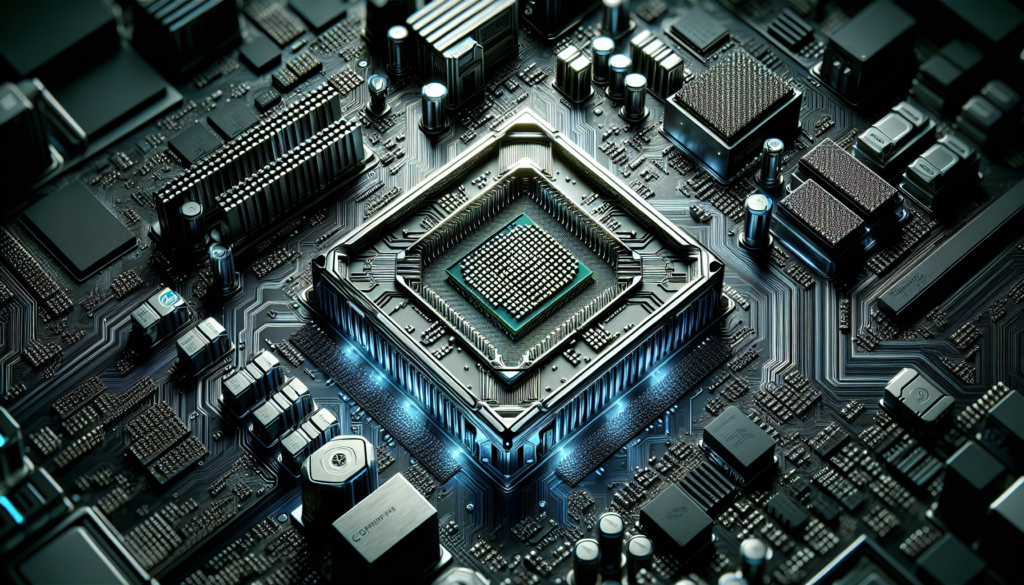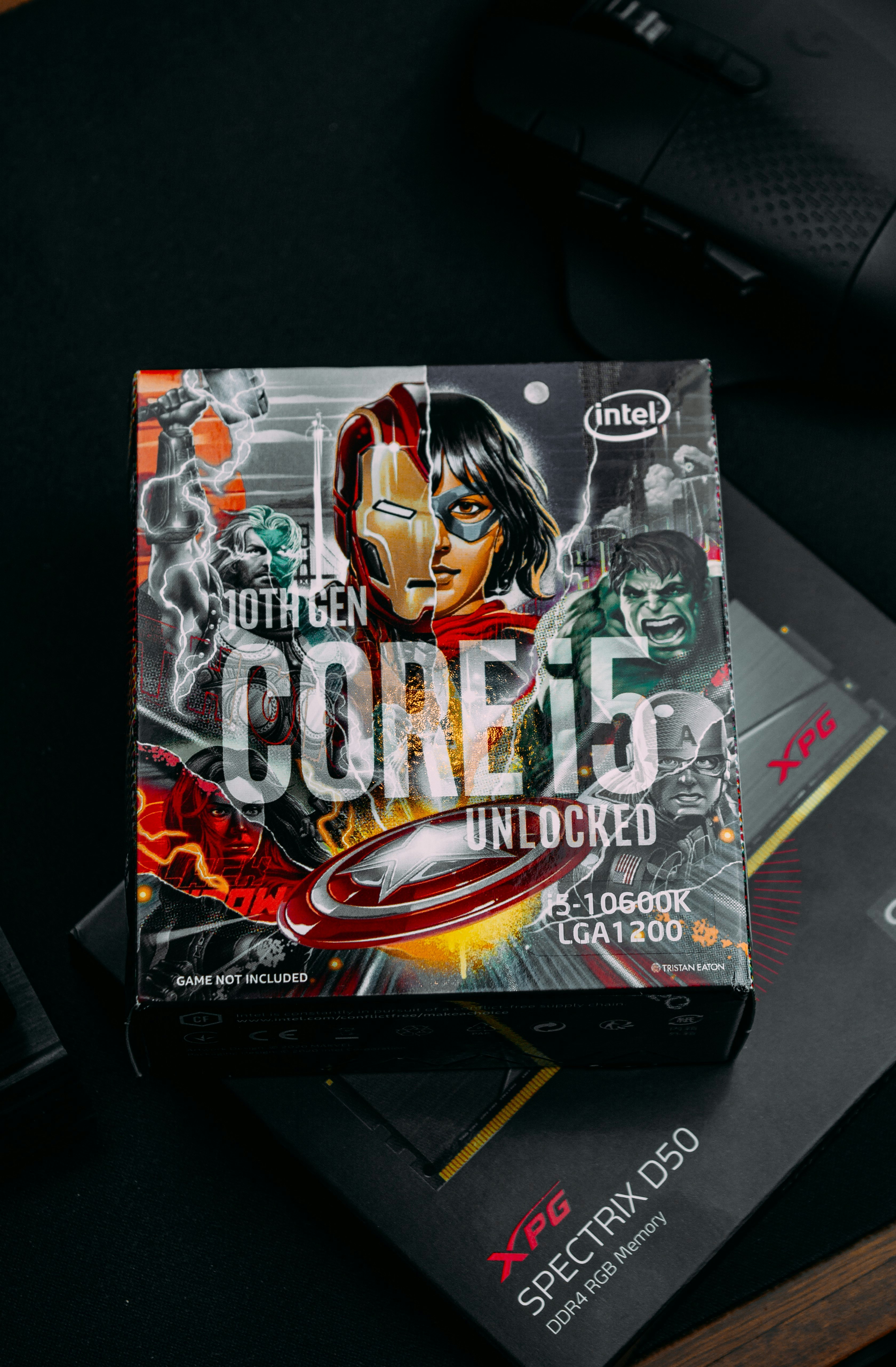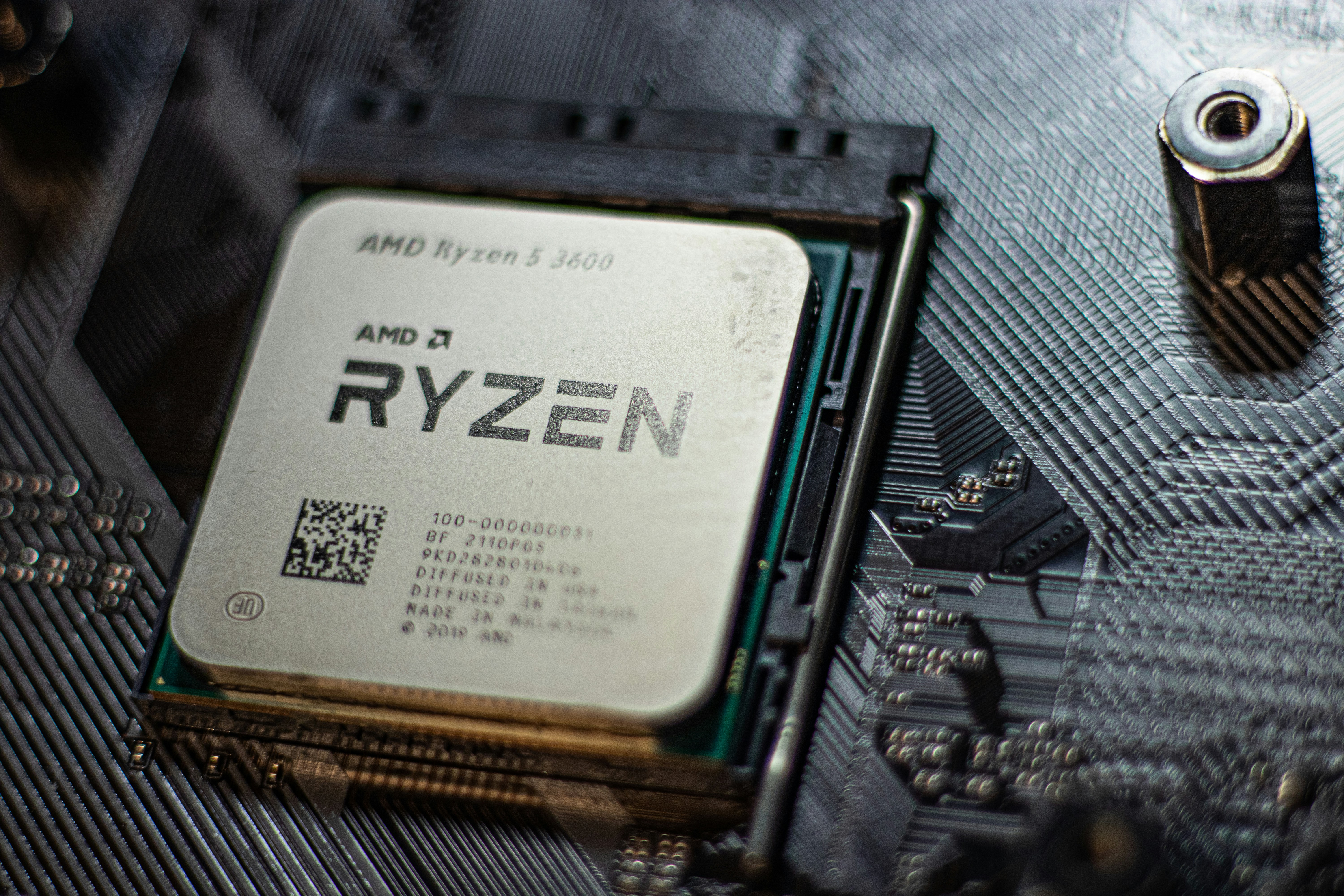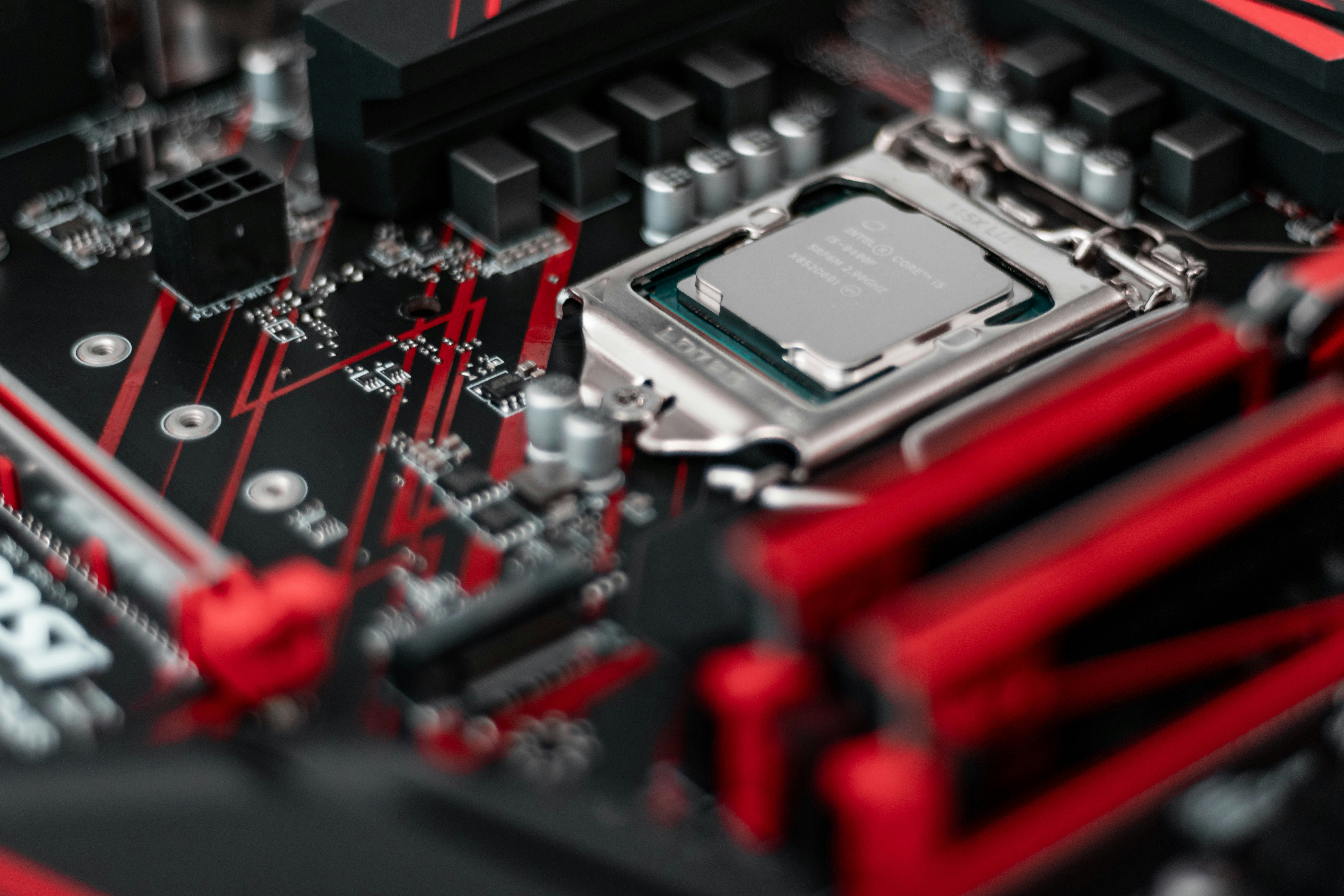So, you’re in the market for a new CPU for your gaming setup, but you’re not sure where to start. With so many options and technical jargon to navigate, it can feel overwhelming. But fear not, because in this article, we’ll break it down for you in simple, easy-to-understand terms. We’ll explore the factors you need to consider when choosing a CPU for gaming, so you can make an informed decision and level up your gaming experience.
This image is property of images.unsplash.com.
Compatibility
Socket Type
When selecting a CPU for gaming, one of the key considerations is the socket type. The socket type refers to the physical design and structure of the CPU and motherboard connection. It is important to choose a CPU that is compatible with the socket type of your motherboard. The most common socket types for gaming CPUs are Intel’s LGA (Land Grid Array) and AMD’s AM (Advanced Microprocessors) series. It is crucial to ensure compatibility between the CPU and motherboard to ensure proper functioning and optimal performance.
Chipset
Another compatibility factor to consider when choosing a CPU for gaming is the chipset of the motherboard. The chipset is an important component that facilitates communication between the CPU, memory, and other peripherals. Different CPUs are compatible with specific chipsets, and it is essential to make sure that your chosen CPU is compatible with the chipset of your motherboard. This compatibility ensures that the CPU is able to effectively communicate with other hardware components, resulting in better gaming performance.
Power Requirement
Power requirement is an often overlooked yet significant consideration when selecting a CPU for gaming. CPUs differ in their power consumption, and it is important to ensure that your power supply unit (PSU) is capable of delivering sufficient power to the CPU. Insufficient power supply can lead to stability issues and may hamper the overall performance of your gaming system. Therefore, it is essential to check the power requirements of your chosen CPU and ensure that your PSU meets or exceeds those requirements.
Performance
Clock Speed
Clock speed, measured in gigahertz (GHz), is an important performance metric to consider when choosing a CPU for gaming. It determines how fast the CPU can execute instructions and perform calculations. Generally, higher clock speeds result in faster performance, which is beneficial for gaming applications that require real-time processing. However, it is worth noting that clock speed alone does not guarantee high performance, as other factors such as core count and cache size also play a significant role.
Core Count
The number of cores in a CPU is another crucial aspect to consider for gaming performance. Cores can be thought of as individual processing units within a CPU that can execute instructions independently. More cores generally translate to better performance, especially in applications that can effectively utilize multiple cores, such as modern games and certain productivity tasks. However, it is important to note that not all games are optimized for multi-core CPUs, so the impact of core count on gaming performance may vary.
Cache Size
Cache size is a small, high-speed memory within the CPU that stores frequently accessed data. It acts as a temporary storage space for instructions and data, allowing the CPU to retrieve information quickly. Larger cache sizes often result in improved performance, as the CPU can access frequently used data without having to retrieve it from slower main memory. For gaming, a larger cache size can help reduce loading times and improve overall responsiveness, especially in open-world games with expansive environments.
Overclocking Potential
Unlocked Multiplier
Overclocking is the process of increasing the operating frequency of a CPU beyond the manufacturer’s specified limits. CPUs with an unlocked multiplier provide greater flexibility for overclocking, as they allow for easy adjustment of the CPU’s clock speed without affecting other components. This allows gamers to push their CPUs to higher clock speeds, potentially unlocking additional performance. If you are interested in overclocking, choosing a CPU with an unlocked multiplier is crucial.
Power Delivery
When it comes to overclocking, reliable power delivery is vital for preventing stability issues and achieving desired performance gains. A robust power delivery system on the motherboard ensures that the CPU receives a stable and adequate power supply during overclocking. Look for motherboards with high-quality power phases and ample power delivery capabilities if you plan on pushing your CPU beyond its stock frequencies.
Thermal Design Power
Thermal Design Power (TDP) refers to the amount of heat a CPU generates and the maximum amount of power it is designed to dissipate through its cooling system. When overclocking a CPU, the heat output typically increases, and it is important to choose a CPU with a reasonably high TDP rating. This ensures that the CPU’s cooling system, including the heatsink and fan, is capable of effectively dissipating the additional heat generated during overclocking.
Budget
Price
Price is an essential factor to consider when choosing a CPU for gaming, as it determines the overall cost of your gaming system. CPUs vary in price, with higher-end models generally offering better performance but at a higher cost. It is important to strike a balance between your budget and the performance you desire. Consider your gaming needs and allocate a reasonable budget for your CPU, taking into account other essential components such as the graphics card, memory, and storage.
Value for Money
While price is an important consideration, it is equally important to assess the value for money that a CPU provides. Consider the performance you can expect from a CPU based on its price compared to other models in the market. Look for CPUs that offer a good balance of price and performance, ensuring that you get the most out of your investment. Additionally, consider factors such as warranty, support, and future upgradability when evaluating the overall value for money.
This image is property of images.unsplash.com.
Upgradability
Socket Compatibility
When it comes to upgradability, the socket compatibility of a CPU is crucial. Different CPU generations often require different socket types, and it is essential to choose a CPU that is compatible with your current motherboard or a motherboard that supports future CPU upgrades. This allows you to easily upgrade your CPU without having to replace the entire motherboard, saving both money and time.
Chipset Support
Alongside socket compatibility, it is important to consider the chipset support of a motherboard when assessing upgradability. Chipsets vary in terms of their features and capabilities, and choosing a motherboard with a robust chipset that supports future CPU upgrades ensures compatibility with newer technologies and improved performance. Research the chipset options that are available for your chosen CPU and select one that offers good support and future-proofing.
Future-proofing
Future-proofing refers to the ability of a component or system to remain relevant and compatible with future technologies and advancements. It is important to consider future-proofing when choosing a CPU for gaming, as technology evolves rapidly. Look for CPUs that offer good performance today but also have the potential to handle future gaming demands. Consider factors such as the CPU’s architecture, support for upcoming technologies, and compatibility with future software requirements.
Cooling Requirements
Heat Output
Heat output is an important consideration when selecting a CPU for gaming, as excessive heat can negatively affect performance and system stability. Different CPUs generate varying amounts of heat, and it is important to choose a CPU that aligns with your cooling capabilities. If you plan on using air cooling solutions, opt for CPUs with lower heat outputs. For more demanding scenarios or overclocking, consider CPUs with higher heat outputs and invest in more robust cooling solutions such as liquid cooling.
Cooler Compatibility
When it comes to cooling a CPU, ensuring compatibility between the CPU and the cooler is essential. Different CPUs have different physical designs, and it is important to choose a cooler that is compatible with the CPU’s socket type. Some CPUs come with stock coolers that are specifically designed to work with that CPU model, while others may require an aftermarket cooler for optimal cooling performance. Check the compatibility requirements of your chosen CPU and select a cooling solution accordingly.
Thermal Performance
Thermal performance refers to the ability of a cooling solution to effectively dissipate the heat generated by a CPU. Higher thermal performance means better heat dissipation, resulting in lower CPU temperatures and improved system stability. When choosing a CPU for gaming, it is important to consider the overall thermal performance of the cooling solution you plan to use. Look for cooling solutions that have good reviews and are known for their ability to keep CPUs cool under heavy loads.
This image is property of images.unsplash.com.
Graphics Card Pairing
Bottlenecking
When choosing a CPU for gaming, it is important to consider how well it pairs with your graphics card. Bottlenecking occurs when one component, typically the CPU or the graphics card, limits the performance of the other. To avoid bottlenecking, it is crucial to choose a CPU that is capable of keeping up with the demands of your graphics card. Consider the specifications and recommended requirements of your chosen graphics card, and select a CPU that complements its performance.
Matching Performance
Matching the performance of your CPU and graphics card is essential for optimal gaming performance. Aim for a balanced system where both components can work together harmoniously to deliver smooth, high-quality gaming experiences. Ensure that your chosen CPU can handle the demands of the latest games and matches or exceeds the performance of your graphics card to avoid any performance limitations.
PCIe Gen Compatibility
PCIe (Peripheral Component Interconnect Express) Gen compatibility is another factor to consider when pairing a CPU with a graphics card. PCIe Gen is the standard for connecting graphics cards and other high-performance peripherals to the motherboard. Check the generation of PCIe supported by your chosen CPU and ensure compatibility with your graphics card. Choosing a CPU with the latest PCIe Gen ensures optimal data transfer bandwidth and avoids any potential performance bottlenecks.
Brand Reputation
Reliability
Reliability is a crucial factor to consider when choosing a CPU for gaming. You want a CPU that is built to last and can handle the demands of intensive gaming sessions without any issues. Research the reputation of different CPU brands and models, read customer reviews, and consider factors such as build quality, durability, and overall reliability. Opting for a reputable brand with a track record of producing reliable CPUs will give you peace of mind and ensure a more satisfying gaming experience.
Customer Support
Customer support is an often overlooked but important aspect of the CPU selection process. In case of any issues or queries, having access to reliable customer support can make a significant difference. Look for CPU manufacturers that provide good customer support, including timely responses to queries, clear and helpful documentation, and accessible troubleshooting resources. Good customer support can help address any potential issues promptly and minimize downtime.
Warranty
Choosing a CPU with a good warranty is a wise decision when it comes to protecting your investment. Different CPUs come with varying warranty periods, ranging from one to several years. A longer warranty period suggests that the manufacturer has confidence in their product’s reliability. Consider the warranty offered by different CPU brands and models, and opt for CPUs with longer warranty periods to ensure peace of mind and protection against potential defects or failures.
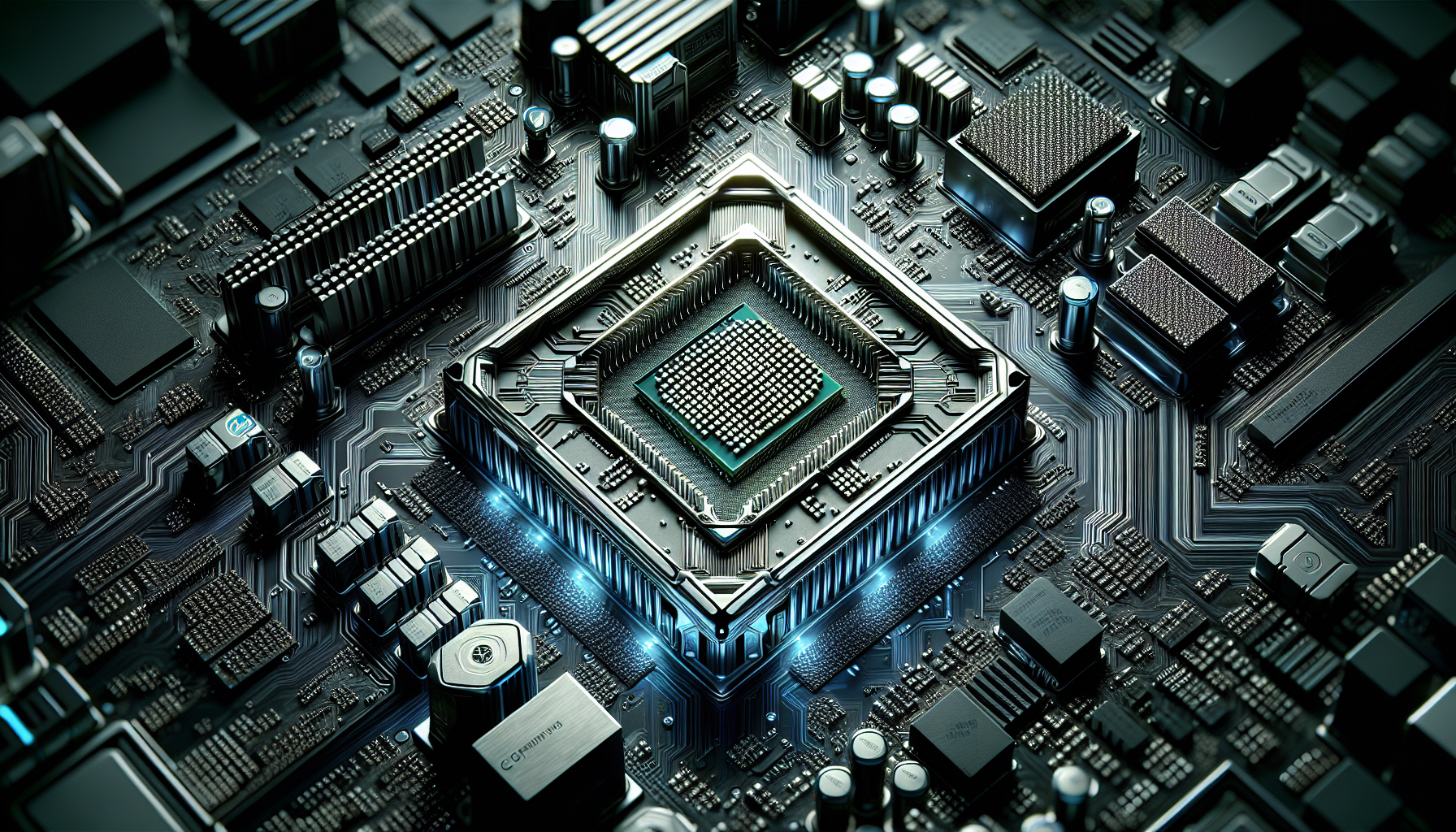
Software Optimization
Operating System Compatibility
When selecting a CPU for gaming, it is important to consider its compatibility with the operating system (OS) you plan to use. Different CPUs may have specific requirements or optimizations for certain operating systems. Ensure that your chosen CPU is fully compatible with your preferred OS to avoid any compatibility issues that may impact gaming performance. Research the recommended OS compatibility for your selected CPU and verify compatibility with your intended OS.
Game-specific Enhancements
Some CPUs come with specific enhancements or optimizations designed to enhance gaming performance. For example, Intel CPUs often feature technologies like Intel Turbo Boost, which automatically increases the clock speed when additional performance is needed. AMD CPUs, on the other hand, may offer features like Precision Boost that dynamically adjust clock speeds based on workload demands. Research the specific enhancements offered by different CPUs and assess how they align with your gaming needs.
Driver Support
Driver support is an important consideration when choosing a CPU for gaming, as drivers play a crucial role in ensuring optimal performance and compatibility with software and games. Look for CPUs from manufacturers that provide regular driver updates and have good driver support. Regular driver updates not only optimize performance but also address any compatibility or stability issues that may arise. Ensure that the CPU you choose has a track record of reliable driver support to maximize gaming performance.
Future Gaming Trends
Virtual Reality Support
Virtual reality (VR) gaming has become increasingly popular, and it is worth considering future VR support when selecting a CPU for gaming. VR gaming places significant demands on the CPU, as it requires high processing power and fast response times to deliver an immersive experience. Look for CPUs that are capable of handling the demands of VR gaming, including high clock speeds, multiple cores, and compatibility with VR hardware. Investing in a CPU that supports VR technology ensures that you can enjoy the latest gaming experiences without any limitations.
Ray Tracing Capability
Ray tracing technology has revolutionized gaming visuals by simulating the behavior of light in real-time, resulting in incredibly realistic graphics. As games continue to adopt ray tracing, it is important to consider CPU compatibility with this technology. Ray tracing relies heavily on CPU performance, as it involves complex calculations and rendering processes. Opt for CPUs that offer strong multi-threaded performance and efficient architecture to handle the demands of ray tracing technology.
Multi-threaded Performance
Multi-threaded performance refers to a CPU’s ability to handle multiple simultaneous tasks or threads. Future gaming trends are likely to involve increasingly multi-threaded game engines and software, making strong multi-threaded performance an important consideration. CPUs with higher core counts and efficient multi-threading capabilities can handle the demands of modern games and future software updates. Consider CPUs with good multi-threaded performance to ensure that your gaming system remains capable of handling upcoming gaming trends.
